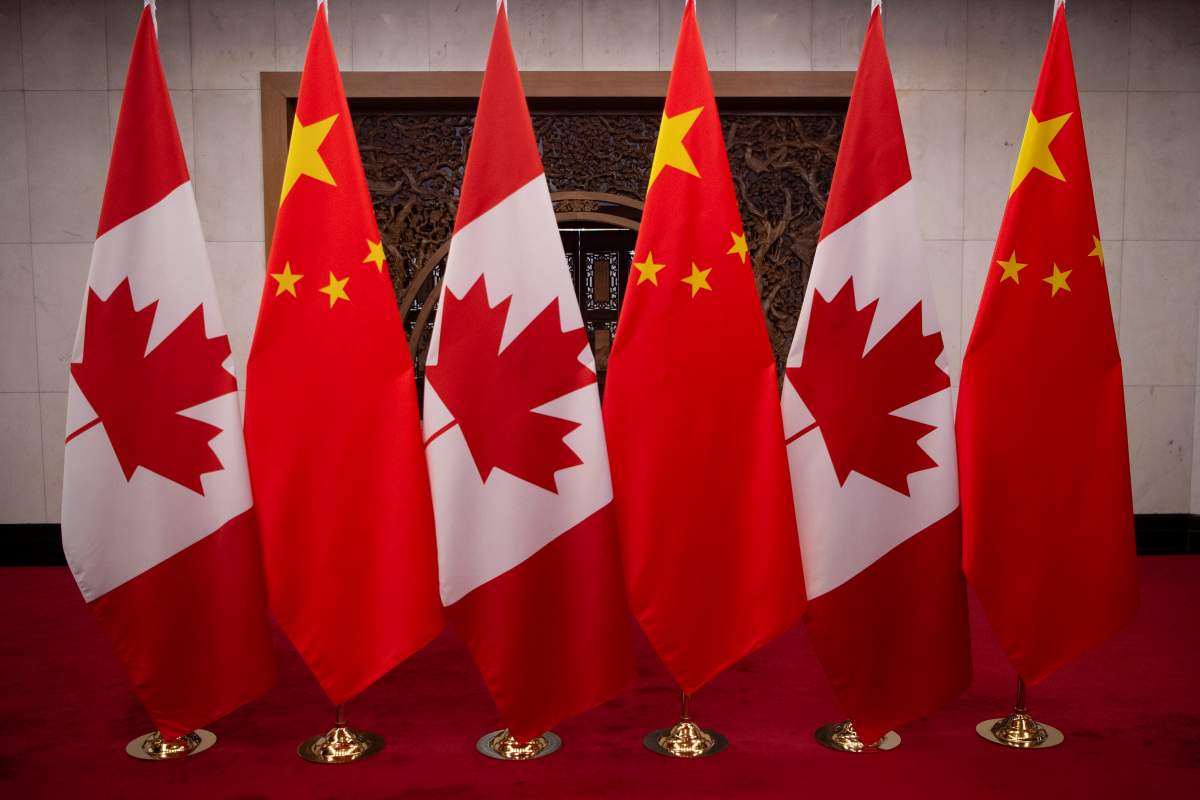With the English-language debate rolling around, I’m anxious to know what our political leaders have to say about China.

Given how little foreign policy seems to matter to Canadian voters, I’m guessing “as little as possible.” That was the case in 2019, and there’s no reason to feel things will change.
If you ask me, and I know you probably won’t, a nuanced and principled policy toward China is more important than ever. Under Xi Jinping, China has become more hardline about dissent, or even difference, at home. Look at how intolerant it has been toward democracy activists in Hong Kong (where I was born and the home of 200,000 Canadians) and the Uyghur ethnic minority. Meanwhile, China has become unafraid of other countries. It responded to the arrest of Meng Wanzhou with “hostage diplomacy.” The “Two Michaels” have now been detained in China for over 1000 days.
Colour me surprised that many Chinese-Canadians feel differently. The issues they’re concerned about are primarily domestic. “We belong here. We belong in Canada. Our focus and energy should be here,” says Amy Go, president of the Chinese-Canadian Council for Social Justice. With nativist politicians blaming China for the virus, one report from various Chinese-Canadian advocacy groups found that between March 10, 2020, to Feb. 28th, 2021, there were 1,150 cases of racist attacks from across Canada.
Go’s group wants voters to examine the impact of systemic racism, which has been exacerbated during the pandemic. At 20 per cent, the poverty rate among Chinese-Canadians is double the observed rate of the white population. “How is the government going to ensure that the recovery plan addresses the disparities that were so clearly experienced during the pandemic?” Go says.
“The main issue for Chinese-Canadians is equality,” adds Ally Wang, who launched a Chinese-language website to encourage voter participation. Wang lives in the Vancouver area, where violence against Asians rose 717 per cent between 2019 and 2020.
“We don’t want discrimination. Our government has a responsibility to stop that.”

But when asked about China, Wang only describes international relations as “super complex.” Meanwhile, Go believes any party stance toward China should distinguish Chinese-Canadians from their land of ancestry.
“Do not make life harder for us,” Go tells politicians. “Make sure that us Chinese-Canadians are not being seen as the culprits.”

Get daily National news
I would argue that China is not only a foreign-policy issue but a domestic one.
In China Unbound, a journalistic exploration of China’s expanding geopolitical influence, reporter Joanna Chiu details the harassment that Chinese-Canadians have experienced whenever they speak critically about China.
Chiu recounts the story of an anonymous Chinese national studying in Quebec whose retweets of internet posts criticizing the Chinese Communist Party led to harassment of his parents back home. In another case, Chiu describes threats experienced by Chinese-Canadian activist, Cherie Wong, on a trip to Vancouver.
“Wong, the executive director of the Alliance Canada Hong Kong advocacy group,” writes Chiu, “received a call to her hotel room demanding that she leave immediately and that ‘people’ were coming to collect her.” In both cases, the threats were reported to police, who could offer little protection.
“The cases I reported on in Canada drove home to me that Beijing leaders truly feel anyone of Chinese descent is fair game,” Chiu adds later, “and they have a right to curtail their freedom of speech years or even generations after they settled abroad.”
Mabel Tung believes foreign policy toward China should be an election issue.
“As Canadians, we know what’s right and what’s wrong,” says Tung, chair of the Vancouver Society in Support of Democratic Movement. As a “middle power,” Tung believes, Canada can’t stand up to China directly, but must cooperate with other countries to get its attention.
“Human rights is a core value of being Canadian. All our parties’ leaders should pay attention to what the Chinese Communist Party is doing in China and Hong Kong, and on Canadian soil.”

As there’s no consensus among various Chinese-Canadian groups on the hot-button issues, it’s not surprising how divergent the political parties are about anti-Chinese racism and China. Neither topic is mentioned specifically in the electoral platforms of the Bloc Quebecois, Green Party, People’s Party, and governing Liberal Party.
On the other extreme, the Conservative Party sees some traction on this issue. The Tories mention China 31 times in their Recovery Plan, advancing robust economic and security responses to Chinese political aggression. It also includes this qualifier: “We stand especially with Chinese Canadians whose contributions to Canada are immeasurable and who are enduring an appalling rise in anti-Asian hate and discrimination.”
With the concerns of Chinese-Canadians far from the forefront of the party’s election platforms, it may surprise many to know that, according to the 2016 Census, people of Chinese ancestry are the biggest non-European ethnic group in Canada. It’s only been within the lifetime of a Baby Boomer that we’ve had the right to vote (in 1947), but an Elections Canada report shows that voter participation by both Canadian-born and immigrant Chinese being much lower than the overall totals.
Perhaps this isn’t surprising. Given the history of discrimination and violence against them, Chinese-Canadians have survived by perpetuating a stereotype as the obliging, grateful “model minority.” “One Model Minority stereotype,” says Go, “is that we keep quiet and keep our heads low. Politics is not for us.”
Maybe this election will be the one in which Chinese-Canadians — a diverse group that encompasses new immigrants, those who came to Canada via the Caribbean and Southeast Asia, and those whose ancestors moved here over a century ago — finally show up at the polls.
“If we don’t vote, we marginalize ourselves,” Wang says. “We need to leave our comfort zone.”
Kevin Chong is an author and Creative Writing professor at UBC Okanagan.







Comments
Want to discuss? Please read our Commenting Policy first.